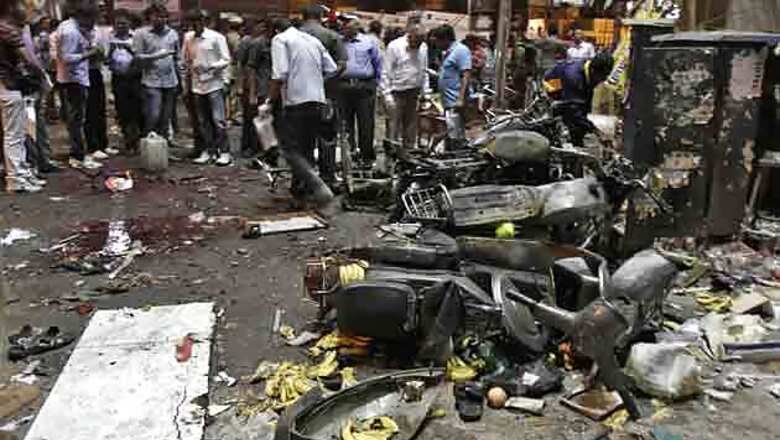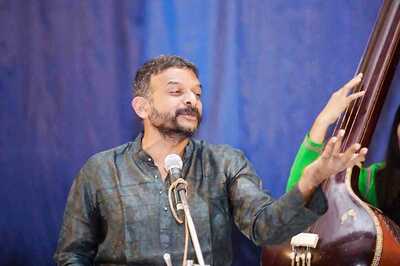
views
Security analyst and senior journalist Praveen Swami joined IBNLive readers for an interaction on the security situation in the country in light of the Hyderabad blasts.
Q. Do we have any level of security for Mumbai Local trains? Anyone can board with any sort of luggage with him. The only security seems to be that no one in the city is having a deadly explosive with them. Is it not a preposterous logic. If not, then please share what is the assurance of safety? Asked by: Chinoo
A. Chinoo, sadly, its physically impossible to screen everyone going into a busy train system or marketplace-there are just too many people. Can you imagine how long the queues would be if everyone had to be searched at CST or Churchgate before boarding a train? This doesn't happen anywhere in the world. Local authorities sometimes put up metal detectors, etc., to convince the public they're doing something, but this is just to provide an illusion of security. The answer lies in better intelligence to preempt attacks-not turning every city into a fortress.
Q. A vast country like India with more than a billion population we have to live with the terror and terrorists. More than the policing awareness must be brought to the mind of the people Asked by: prathapvp
A. Yes, Prathap, that's true-but awareness isn't enough. For the most part, our police forces are very badly trained and under-resourced. That hasn't changed much since 26/11. It will change when the public tell their political leaders they demand a proper, modern police force. Until then, nothing will change.
Q. I think there's been a maturity in the way Bomb blasts are now handled in India. Back in 2007, after the Mecca Masjid blasts, there were rioting and people were killed in Police firing. Muslims youths were indiscriminately rounded up by police and held for long. After the Gokul Chat blasts in the same year, Advani had held a public meeting right on the debris of the blasts. There have been no convictions in the previous blasts. This time, the responses from the police, public, politicians etc - though there's room for improvement - has all been more nuanced. Do you agree with this assessment? Also, do you think that the security agencies now have a sufficient handle on Indian Mujahideen that the series of blasts which took place fron 2005-07 cannot be repeated by the IM? Asked by: Aniket
A. I'm not sure what you mean by maturity, Aniket, but just from a security prism, I don't think you're right. Our emergency service responses, crime scene management, etc., aren't much better than in 2007. Nor our are criminal investigation databases, forensics and so on. The fact that there are few convictions, therefore, shouldn't surprise us (and that's not even factoring in our dysfunctional court system). As for the intelligence agencies-no, I do not think they have a handle on the IM. They remain horribly underresourced, given the scale of the challenge.
Q. How can India stop Pakistan from running terror factory on it's soil. Asked by: satyendra
A. Pakistan hasn't been able to stop terrorists attacking it from its own soil-I doubt very much its going to be able (even if it wants to) to stop terrorists from attacking us! Seriously, though, the level of terrorist violence against India has come down significantly since 2001-look up the databases at www.satp.org if you want more detail. This has happened, in part, because of international pressure on Pakistan. Sure, it isn't enough-but the picture isn't as bad as we sometimes think.
Q. Can we have a global system to detect bombs instead of with bomb squad people? Can we use mobile signal coverage to detect bombs any where in India? Asked by: Sunil
A. Not that I know of, Sunil-I don't think anyone in the world has a solution to the problem of IEDs. There are people in the US and India working on better detection technologies, but we're still a long way from a tech-fix. In the meantime, better regulation of the sale of dual-use substances like ammonium nitrate would go a long way in lowering the risk.
Q. Will it be useful, if intelligence report of the impending attack may be shared with the public so that public can help to prevent attack. Asked by: Athaur Rahman
A. It will-but only if you know terrorists plan to strike at a given place at a given time. That's almost never the case. In some cases, police do share general information with the public, but I can't think offhand of any instance where such sharing prevented an attack.
Q. Bringing all the intelligence agencies under one ministry and modernising security forces shall be a good solution to this Asked by: Sathyaki
A. How? If the police forces don't have properly trained personnel, and enough resources, which is the current situation, how will having a single boss change anything? The problem now isn't that the efforts of police services aren't coordinated. The problem is that their investigation and intelligence capacities are very poor. Just putting them under the charge of a crime czar won't solve that problem-it may actually make the bureaucracy even more unresponsive and stifling.
Q. What is with US that it is so successful in handling terror. What do you think is a key differentiation in the approach? Asked by: Vikas
A. Well, the US had 9/11-it hasn't always been successful in dealing with terror! But after that, it made big investments in intelligence and policing. These, along with some good luck, have paid off. We haven't. The single difference is that they've tried to fix their problem. We're content to live with it.
Q. There are news that 12 terrorist organisations having their cells working in Hyderabad for the last two decades...Why can't our police take pro active steps to eliminate these cells? Asked by: RR
A. I've no idea who these 12 organisations you're referring to are-but the Hyderabad Police have arrested dozens of suspected terrorists, and in some cases, even killed them. Its not as if the police are doing nothing. The question is-is it enough?
Q. Did the Hyderabad Police neglect Central Intelligence inputs? Asked by: Sonia
A. Yes-but the intelligence inputs received were very vague. If you tell a police force that someone will attack someplace in a city at sometime in the next month, it isn't very helpful. You can't shut down entire cities or neighbourhoods forever-there were similar alerts before 26/11, much more specific, which failed to prevent the attack for the same reason. Sadly, the intelligence wasn't good enough.
Q. Mr Swami, there have been reports in the media since 2010 that Riyaz Bhatkal has been shot dead in Karachi by Chhota Rajan's men. Conclusions have also been drawn that this operation was aided and abetted by Indian Intelligence. My question is two-fold. One, do you believe this to be true? Two, if this is true, should Indian Intelligence really be using such 'non-state' actors to do their dirty business? Asked by: Aniket
A. I've no reason to believe Riyaz Bhatkal is dead. Perhaps he is, but I've seen no evidence to back the claim. As for Indian intelligence consorting with dubious characters, that's what intelligence services across the world do-they'll only get information on the activities of a criminal from another criminal, nor me or you.



















Comments
0 comment